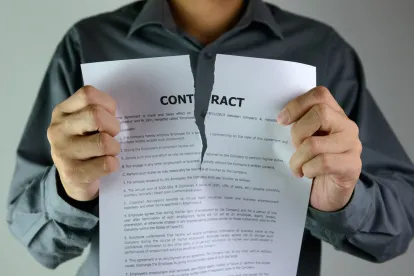The New York State Office of the Attorney General (“NYAG”), working with the Illinois Attorney General, announced on September 18, 2018 that it had reached a settlement with WeWork Companies, Inc. (“WeWork”) regarding its use of non-compete agreements. The WeWork settlement follows earlier non-compete related settlements by the NYAG with, among others, Jimmy John’s Gourmet Sandwiches (“Jimmy John’s”) on June 22, 2016, and Examination Management Services, Inc. (“EMSI”) on August 4, 2016. The NYAG also recently published an FAQ on the use of non-compete agreements in New York, which identifies these settlements, as well as highlighting non-compete legislation that the NYAG proposed to the New York Assembly. Based on these settlements and the proposed legislation, a theme has emerged, which provides valuable guidance to New York employers in their use of non-compete agreements.
The primary focus by the NYAG appears to be on the use of non-compete agreements with low-level/low-wage employees. As stated by former Attorney General Eric Schneiderman in the Jimmy John’s settlement press release, “[n]on-compete agreements for low-wage workers are unconscionable,” “[t]hey limit mobility and opportunity for vulnerable workers and bully them into staying with the threat of being sued. Companies should stop using these agreements for minimum wage employees.” Similarly, in the recent WeWork settlement announcement, the NYAG called the non-compete agreements “overly broad,” and focused on the fact that all employees, including “cleaners, mail associates, executive assistants, baristas, and more, some of whom are paid as little as $15 an hour,” were covered by these agreements. Notably, the WeWork settlement, which released the majority of employees from their non-competes, did not release WeWork’s roughly 100 executive (“Leadership Level”) employees from their obligations.
Another related issue, which is present in the settlement announcements, is the lack of access to confidential or trade secret information. Not only were many low-level/low-wage employees required to sign non-compete agreements, but those employees had very little, if any, access to sensitive information. As seen in the WeWork settlement announcement, the NYAG took exception to the fact that “WeWork used non-compete agreements that prohibited all employees from working for competitors after leaving the company, regardless of job duties, knowledge of confidential information, or compensation. The agreement not only applied to executive and senior staff, but also broadly to all levels of employees.” The NYAG highlighted a similar point for EMSI, noting that the EMSI “non-compete agreements prohibited all employees from working for competitors after leaving the company, regardless of whether they had access to trade secrets or other sensitive information.”
The NYAG’s proposed legislation, Bill A07864A from May 17, 2017, provides further insight into the NYAG’s view on non-compete agreements. First, as proposed, non-compete agreements would be categorically prohibited for any employee earning less than $75,000/year. Next, for those employees earning more than $75,000/year, any non-compete agreement must: 1) be in writing and signed; 2) be provided to the prospective employee by the earlier of a) their receipt of a formal offer of employment or b) thirty days before the non-compete agreement goes into effect; and 3) if provided to a current employee who is not subject to a non-compete, the employee must be provided with 30 days to review before the agreement goes into effect. Further, if any employee subject to a non-compete is discharged without cause then the non-compete is no longer enforceable. Liquidated and other damages are provided for a violation of these provisions.
Taken together, it appears that the NYAG is maintaining its focus on non-compete agreements, specifically as they are applied across-the-board for all levels of employees.
Following these settlements, and in light of the NYAG’s proposed legislation, New York employers should review the current breadth and scope of their non-compete agreements and ensure that they are only being used in circumstances where the non-compete is needed to protect the company’s legitimate business interest, do not create undue burdens for employees, and are reasonable in time/geographic scope. New York employers should also evaluate whether employees earning less than $75,000/year, those who are not involved in the company’s core business, or who are unfamiliar with its proprietary trade secrets and confidential information, are currently required to sign a non-compete agreement, and if so, whether there is a good basis for this restriction.




 />i
/>i

